Introduction to Good Wine for Sangria
The popularity of sangria and the importance of choosing the right wine for it
Sangria is a popular and refreshing wine-based cocktail that originated in Spain. It has gained immense popularity worldwide due to its vibrant flavors and versatility. Choosing the right wine for sangria is essential as it forms the base of the drink and determines its overall taste profile. The type of wine you select can significantly enhance or diminish the flavor and balance of the sangria.
Factors to consider when selecting wine for sangria
When selecting a wine for your sangria, there are several factors to consider:
- Acidity: For a light and zingy sangria, choose a wine with high acidity. Crisp and acidic wines like Vinho Verde from Portugal or dry Riesling from Germany are excellent choices. They provide a refreshing tartness that complements the sweetness of the fruit and other ingredients.
- Crispness: Avoid wines with excessive oak influence, as they can overpower the flavors of the sangria. Instead, opt for wines that are crisp and clean tasting. These wines allow the flavors of the fruits, herbs, and other garnishes to shine through.
- Aromatics: Aromatic wines can add depth and complexity to your sangria. Consider using aromatic whites like Albariño or Sauvignon Blanc, or fruity reds like Tempranillo or Grenache. These wines contribute enticing aromas that enhance the overall drinking experience.
- Sweetness: Sangria typically contains added sugars and fruit juices, so it’s important to choose a wine that is dry or slightly off-dry to balance the sweetness. Wines labeled as “sweet” may make the sangria too cloying. Strike a balance between the sweetness of the wine and the additional sweet ingredients.
By considering these factors, you can select a wine that harmonizes well with the other ingredients in your sangria, creating a balanced and refreshing drink. Remember to serve your sangria chilled over ice to enhance its crispness and let the fruit flavors shine.
Remember, there are various personal preferences when it comes to sangria, so feel free to experiment and adjust the wine and other ingredients to suit your taste. Cheers to creating your perfect sangria!
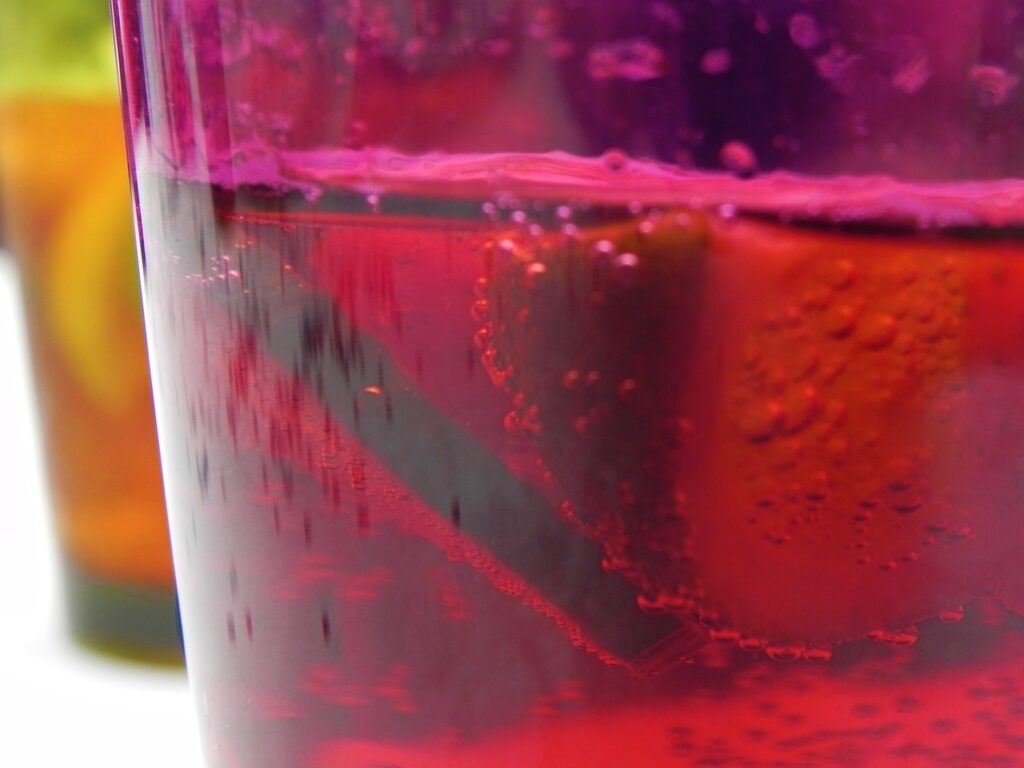
Red Wines for Sangria
Characteristics of red wines that work well in sangria
When selecting red wines for sangria, it is important to consider their characteristics to ensure a well-balanced and flavorful drink. Here are some key characteristics to look for:
- Bold and fruity: Red wines with bold fruit flavors such as berries, cherries, and plums work well in sangria as they add depth of flavor to the drink.
- Medium-bodied: Medium-bodied red wines provide a good balance between flavor and structure in the sangria. They are not too heavy or too light, making them versatile for different sangria recipes.
- Moderate tannins: Sangria is a refreshing and fruity drink, so it is best to choose red wines with moderate tannins. Excessive tannins can overpower the other ingredients and make the sangria too dry.
- Budget-friendly: Since sangria often requires a larger quantity of wine compared to traditional wine consumption, it is wise to choose budget-friendly options that still offer good taste and quality.
Recommended red wine options for sangria
Here are some popular red wine options that are known to work well in sangria:
| Red Wine | Characteristics |
|---|---|
| Tempranillo | A native Spanish varietal known for its fruity and earthy flavors. It pairs well with a variety of fruits and adds depth to the sangria. |
| Garnacha | Also known as Grenache, this Spanish wine offers ripe fruit flavors and a hint of spice. It adds a touch of complexity to the sangria. |
| Malbec | A robust red wine with dark fruit flavors and soft tannins. It provides depth and richness to the sangria. |
| Monastrell | This Spanish red wine is known for its rich and intense flavors of black fruits. It adds complexity and depth to the sangria. |
| Zinfandel | A versatile red wine with jammy fruit flavors. It pairs well with a variety of fruits and adds a touch of sweetness to the sangria. |
These red wines provide a solid foundation for creating delicious and well-balanced sangrias. Feel free to experiment with different combinations of fruits, sweeteners, and spices to personalize your sangria and make it truly your own. Cheers to enjoying a refreshing glass of red wine sangria!
White Wines for Sangria
Characteristics of white wines that are suitable for sangria
When selecting white wines for sangria, it is important to consider their characteristics to ensure a well-balanced and flavorful drink. Here are some key characteristics to look for:
- Crisp and acidic: White wines with high acidity provide the signature crisp and refreshing feeling in sangria. They should have a tart mouth-puckering quality when sipped.
- Fruity and aromatic: Look for white wines with fruity and aromatic profiles, such as citrus, tropical fruits, or stone fruits. These flavors will shine through in the sangria and complement the other ingredients.
- Medium-bodied: Medium-bodied white wines strike a balance between flavor and structure in the sangria. They are not too heavy or too light, making them versatile for different sangria recipes.
- Off-dry or slightly sweet: Sangria is often made with some sort of sweetener, so a white wine with a touch of sweetness can enhance the overall flavor. However, it’s important to avoid wines that are overly sweet, as they can overpower the other ingredients.
Recommended white wine options for sangria
Here are some popular white wine options that are known to work well in sangria:
| White Wine | Characteristics |
|---|---|
| Sauvignon Blanc | Crisp acidity with tropical fruit flavors. It adds brightness and a zesty kick to the sangria. |
| Pinot Grigio | Light and refreshing with subtle fruit flavors. It is versatile and pairs well with a variety of fruits. |
| Riesling | Aromatic with a touch of sweetness. It brings floral notes and a pleasant sweetness to the sangria. |
| Moscato | Sweet and aromatic, it lends a fruity and floral profile to the sangria. It is best used in sweeter sangria recipes. |
| Albariño | Refreshing acidity with citrus and stone fruit flavors. It adds a bright and zesty character to the sangria. |
These white wines provide a good starting point for creating delicious and refreshing sangrias. Experiment with different fruits, sweeteners, and spices to customize your sangria to your own taste preferences. Cheers to enjoying a glass of white wine sangria!
Rosé Wines for Sangria
Why rosé wines are a good choice for sangria
When it comes to making sangria, rosé wines can be an excellent choice. They offer a lighter and more refreshing alternative to red wines, adding a vibrant and fruity flavor to the drink. Here are a few reasons why rosé wines work well in sangria:
- Light and refreshing: Rosé wines are typically crisp and light-bodied, making them a perfect match for the refreshing nature of sangria. They provide a lively and vibrant base for the drink, enhancing its overall appeal.
- Versatile flavor profile: Rosé wines offer a wide range of flavor profiles, from dry to slightly sweet. This versatility allows you to tailor the sweetness of your sangria according to your preferences, ensuring a well-balanced and flavorful combination of ingredients.
- Complement to fruits and other ingredients: Rosé wines have fruity and floral notes that pair beautifully with the various fruits and other ingredients found in sangria recipes. They add depth and complexity to the drink, creating a harmonious blend of flavors.
Recommended rosé wine options for sangria
If you’re looking to make a delicious rosé sangria, here are some recommended wine options to consider:
- Provence Rosé: This French rosé is known for its delicate flavors of strawberries, raspberries, and citrus. It has a crisp acidity that cuts through the sweetness of the other ingredients in the sangria.
- Rioja Rosado: Hailing from Spain, Rioja Rosado offers a more robust and flavorful profile. It has notes of red fruits, such as cherries and cranberries, along with hints of spices. It adds complexity and depth to the sangria.
- White Zinfandel: While technically a blush wine, White Zinfandel can also be used in sangria recipes. It has a touch of sweetness and flavors of watermelon and strawberries, making it a refreshing choice for a fruity sangria.
- Côtes de Provence Rosé: Another fantastic option from the Provence region of France, Côtes de Provence Rosé has a light and elegant flavor profile. It offers subtle fruit flavors and a crisp finish, making it a great choice for a delicate sangria.
- Garnacha Rosé: This Spanish rosé boasts flavors of ripe red fruits, such as strawberries and cherries, with a slightly spicy undertone. It brings depth and complexity to your sangria, elevating its overall taste.
Remember, the best wine for sangria ultimately depends on your personal taste preferences. Feel free to experiment with different rosé wines and various combinations of fruits, sweeteners, and spices to create your perfect sangria. Cheers to enjoying a refreshing glass of rosé wine sangria!

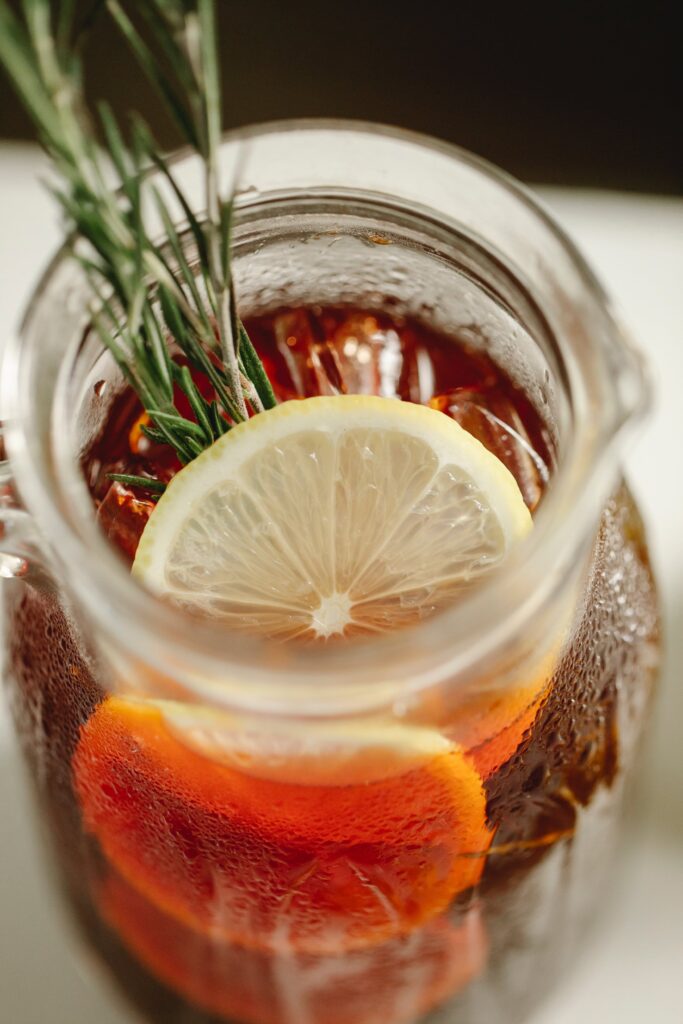
Spanish Wines for Sangria
The significance of Spanish wines in traditional sangria recipes
Spanish wines have a long-standing association with sangria, a traditional Spanish drink that is enjoyed worldwide. Incorporating Spanish wines in your sangria recipe can add an authentic touch to your drink and enhance its overall flavor. Here’s why Spanish wines are significant in traditional sangria recipes:
- Rich history: Spain has a rich winemaking heritage, and their wines have been integral to the creation of sangria for centuries. Using Spanish wines in your sangria recipe can connect you to the traditional roots of this beloved drink, allowing you to experience the true essence of sangria.
- Perfect balance: Spanish wines, such as Rioja and Garnacha, are known for their ability to strike a balance between fruity flavors and dryness. This balance is crucial when selecting a base wine for sangria, as it ensures that the drink is neither overly sweet nor too dry.
- Flavorful varieties: Spain offers a diverse range of wine varieties that work exceptionally well in sangria. These wines possess distinct flavors that complement the fruits and other ingredients used in sangria recipes, resulting in a harmonious blend of flavors.
Popular Spanish wine varieties for making sangria
When it comes to selecting Spanish wines for your sangria, here are some popular choices that you can consider:
| Red Wines | White Wines |
|---|---|
| Rioja | Albariño |
| Garnacha | Torrontés |
| Tempranillo | Verdejo |
| Zinfandel | Airen |
| Bonarda | Macabeo |
| Nero d’Avola | Moscatel |
These Spanish wine varieties have their unique characteristics, such as fruity notes, good acidity, and the ability to pair well with fruits and other ingredients commonly used in sangria recipes. Experimenting with different Spanish wines can help you find the perfect combination that suits your taste preferences.
In conclusion, Spanish wines play a significant role in creating delicious and authentic sangria. Their rich history, perfect balance of flavors, and variety of choices make them an ideal choice for making this beloved drink. So, whether you’re creating a red or white sangria, consider incorporating Spanish wines to elevate your experience and enjoy a glass of refreshing and flavorful sangria. Salud!
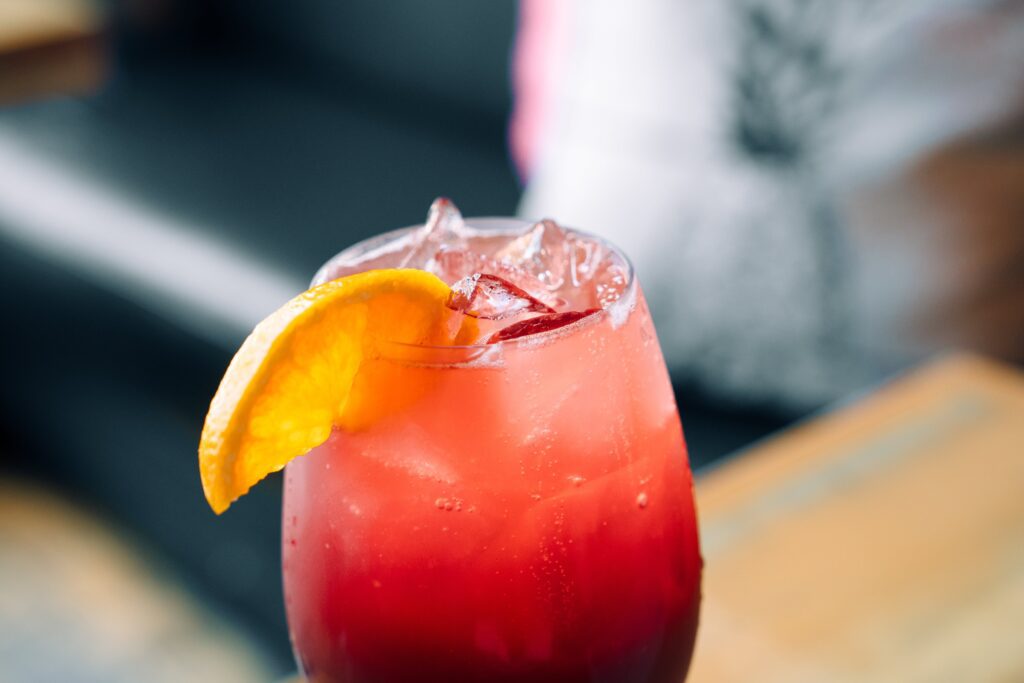
Fruit-Forward Wines for Sangria
The importance of selecting fruity wines for sangria
Selecting the right wine is crucial when making sangria, as it sets the foundation for the flavor profile of your drink. Opting for fruit-forward wines can enhance the fruity and refreshing qualities of sangria, creating a delightful beverage that is perfect for summer parties and gatherings. Here’s why selecting fruity wines for sangria is important:
- Enhances fruit flavors: Sangria is known for its vibrant flavors and the combination of wine and various fruits. Choosing a fruit-forward wine can intensify the fruity notes in your sangria, making it even more refreshing and enjoyable.
- Adds complexity: Fruity wines often have complex flavor profiles, with layers of fruitiness and hints of sweetness. These characteristics can add depth and complexity to your sangria, elevating it beyond a simple fruity cocktail.
- Balances acidity: Fruit-forward wines typically have a good balance of acidity, which is important for achieving a harmonious blend of flavors in sangria. The acidity helps to brighten the overall taste of the drink and enhances the freshness of the fruits.
Recommended fruit-forward wine options for sangria
When selecting a fruit-forward wine for your sangria, consider these options:
- Pinot Noir: Known for its red fruit flavors, Pinot Noir can bring a touch of elegance and complexity to your red sangria. Its medium body and fruity undertones make it a versatile choice.
- Sauvignon Blanc: With its refreshing citrus and tropical fruit notes, Sauvignon Blanc works well in white sangrias. Its bright acidity complements the fruits and adds a zesty kick to the drink.
- Rosé: A blend of red and white wine, rosé offers a balance of fruitiness and acidity. Its light and delicate profile make it a great choice for a refreshing summer sangria.
- Moscato: If you prefer a sweeter sangria, Moscato is an excellent option. This wine is known for its fruity and floral aromas, making it perfect for a summer evening gathering.
- Prosecco: For a bubbly twist on sangria, consider using Prosecco. Its crispness and effervescence add a lively element to your drink, creating a festive and celebratory vibe.
Remember to adjust the recipe accordingly based on the sweetness level of your chosen wine. Experiment with different fruits and spirits to create your own signature sangria recipe that suits your taste preferences. Cheers to a refreshing and fruity future with your homemade sangria!
Avoiding Oaky and Earthy Wines
Understanding why oaky and earthy wines may not be ideal for sangria
Selecting the right wine for sangria is crucial to achieving the perfect flavor profile. When it comes to selecting wines for sangria, it is best to avoid those with lots of oak or earthy characteristics. Here’s why:
Wine regions and varieties to avoid when making sangria
1. Oaky Wines: – Oaky wines are typically aged in oak barrels, which can impart rich and complex flavors like vanilla and spice. – These flavors may overpower the fruity and refreshing qualities of sangria, resulting in a less balanced and vibrant drink. – Wines from oak-heavy regions such as California, Australia, and parts of France are usually more oaky in taste. – Examples of wines to avoid include heavily oaked Chardonnay, Cabernet Sauvignon, and Malbec.
- Earthy Wines:
- Earthy wines often have flavors reminiscent of mushrooms, forest floor, or damp soil.
- These flavors may not complement the fruity and zingy elements of sangria.
- Wines from regions like Burgundy, Rhône Valley, and certain Italian wine regions tend to have earthy characteristics.
- Varieties such as Pinot Noir and Gamay may have earthy undertones that are not ideal for sangria.
It is important to note that personal preferences vary, and some individuals may enjoy the complexity that oaky or earthy wines bring to their sangria. However, for a crisp and refreshing sangria with vibrant fruit flavors, it is generally recommended to opt for wines without heavy oak or earthy characteristics.
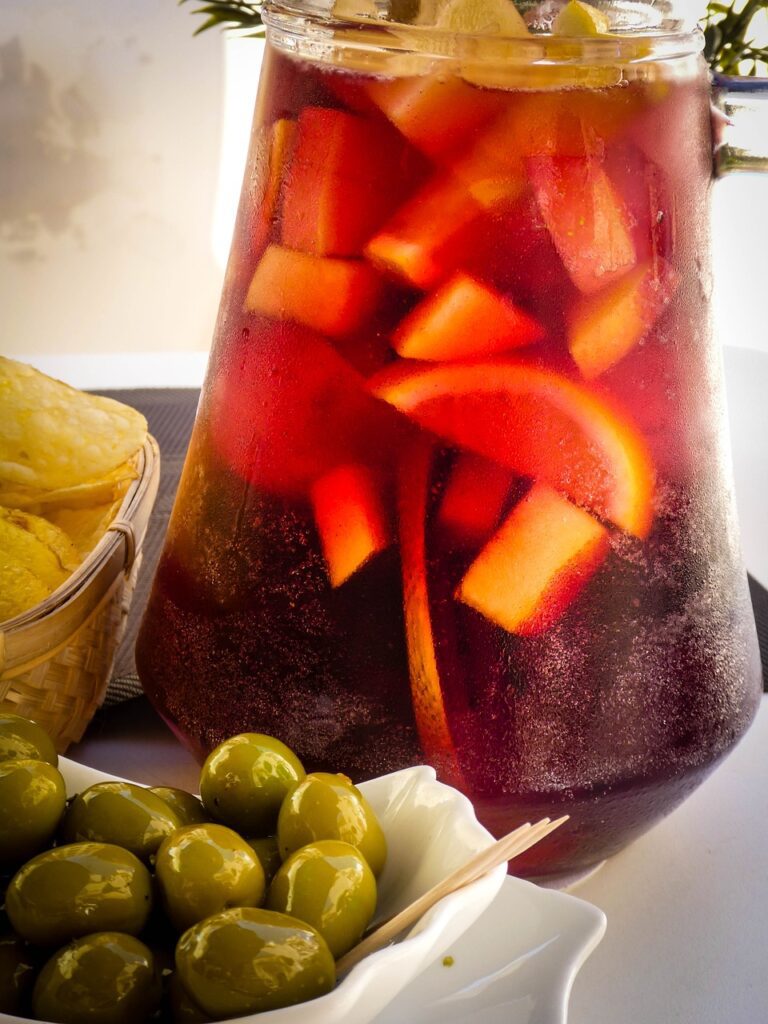
Recommendations from Experts
Insights from wine experts on selecting the best wines for sangria
When considering the right white wine for sangria, experts suggest opting for a high-acid wine to achieve the drink’s signature crisp and refreshing characteristics. Anagnostos, from the Wine Enthusiast Tasting Department, advises that a tart mouth-puckering feeling is an indicator of the right wine to use.
Expert-recommended wines for crafting a refreshing sangria
While Spanish wines are often associated with sangria, experts note that any high-acid wine from around the globe can be used. However, it can be beneficial to choose wines with flavors that complement the fruits included in the sangria. Some popular white wine picks for sangria include:
| Wine | Region | Flavors |
|---|---|---|
| Sauvignon Blanc | New Zealand, California, France | Citrus, tropical fruits |
| Pinot Grigio/Pinot Gris | Italy, Oregon, Alsace | Crisp, green apple, pear |
| Riesling | Germany, Alsace, Washington | Peach, apricot, honey |
| Albariño | Spain, Portugal | Stone fruit, citrus |
It is important to remember that personal taste preferences play a significant role in selecting the best white wine for sangria. Ultimately, individuals should choose a wine that suits their own palate, ensuring an enjoyable and refreshing drinking experience.
Recommendations from Experts
Insights from wine experts on selecting the best wines for sangria
When it comes to choosing the right wine for sangria, experts suggest opting for a high-acid wine to achieve the drink’s signature crisp and refreshing characteristics. According to Anagnostos from the Wine Enthusiast Tasting Department, a tart mouth-puckering feeling is an indicator of the right wine to use.
Expert-recommended wines for crafting a refreshing sangria
While sangria is commonly associated with Spanish wines, experts note that any high-acid wine from around the globe can be used to make a delightful sangria. However, it is beneficial to choose wines with flavors that complement the fruits included in the sangria. Here are some popular white wine picks for sangria:
| Wine | Region | Flavors |
|---|---|---|
| Sauvignon Blanc | New Zealand, California, France | Citrus, tropical fruits |
| Pinot Grigio/Pinot Gris | Italy, Oregon, Alsace | Crisp, green apple, pear |
| Riesling | Germany, Alsace, Washington | Peach, apricot, honey |
| Albariño | Spain, Portugal | Stone fruit, citrus |
It is important to note that personal taste preferences play a significant role in selecting the best white wine for sangria. Ultimately, individuals should choose a wine that suits their own palate, ensuring an enjoyable and refreshing drinking experience.
Conclusion
Summary of key points for choosing the right wine for sangria
To summarize, when selecting a wine for sangria, consider the following points:
- Opt for a high-acid wine for a crisp and refreshing sangria.
- Look for wines with flavors that complement the fruits used.
- Popular white wine options include Sauvignon Blanc, Pinot Grigio/Pinot Gris, Riesling, and Albariño.
Final thoughts on creating a delicious and refreshing sangria
Sangria is a festive and fruity drink that is best enjoyed with friends. Whether it’s a summer gathering or a party with Spanish tapas or Mexican food, sangria adds a touch of fun to any occasion. By selecting the right wine and incorporating fresh ripe fruit, you can create a delicious and refreshing sangria that will be a hit among your guests. Cheers to good times and tasty drinks!
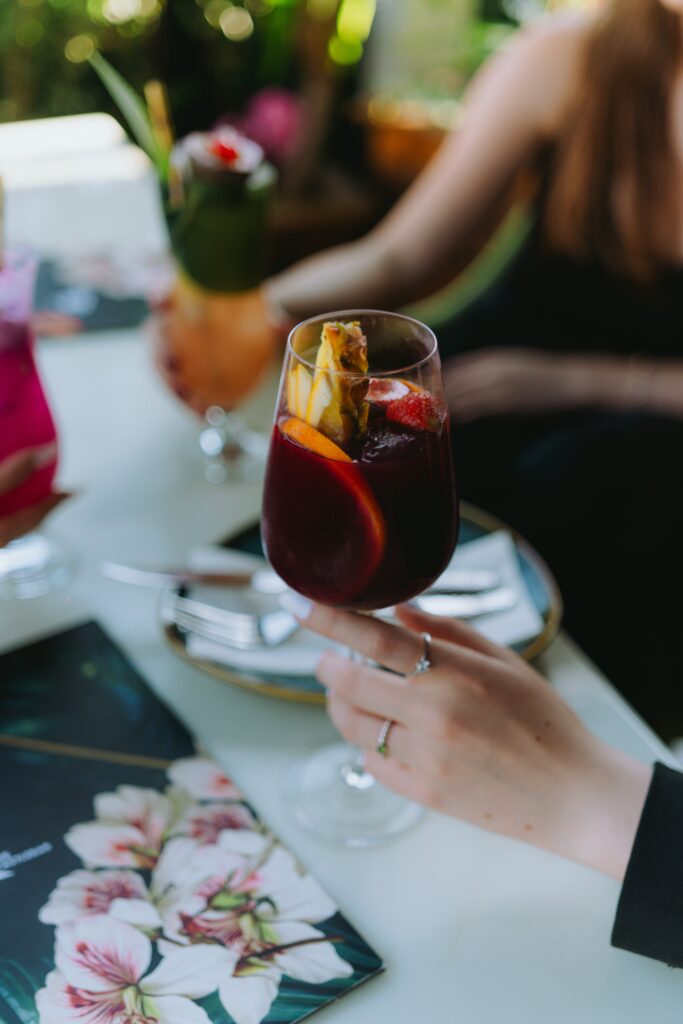
Good Wine for Sangria: Selecting the Right Wine for a Refreshing Sangria
FAQs
Q: What is Sangria?
A: Sangria is a popular and refreshing wine-based drink with a combination of chopped fruits and other ingredients. It originated in Spain and has become popular worldwide for its vibrant flavors and versatility.
Q: What type of wine is best for making sangria?
A: The type of wine you choose for making sangria depends on your personal preference and the flavors you wish to achieve. Typically, a medium-bodied red wine like Tempranillo or Grenache works well for traditional red sangria. However, you can also use a light-bodied red, such as Pinot Noir, or even a dry rosé. For white sangria, opt for a crisp and fruity white wine like Sauvignon Blanc or Pinot Grigio.
Q: Can I use cheap wine for making sangria?
A: While using an expensive bottle of wine is not necessary, it’s important to choose a wine that you would enjoy sipping on its own. Avoid extremely cheap wines that have an overly harsh taste or unbalanced flavor profiles, as they can negatively impact the final sangria. Look for wines in the mid-price range that are pleasant and have good acidity.
Q: Which fruits are best for sangria?
A: Sangria offers endless possibilities for fruit combinations, but some popular choices include oranges, lemons, limes, apples, berries, and peaches. It’s best to choose fruits that are in season and have a good balance of sweetness and acidity, as they will infuse the sangria with their flavors.
Q: Are there any non-alcoholic options for making sangria?
A: Absolutely! If you prefer a non-alcoholic version, you can substitute the wine with grape juice or a combination of fruit juices like cranberry, orange, and pineapple. Use sparkling water or soda instead of adding carbonation. The result will be a vibrant and fruity mocktail that can still be enjoyed by all.
Q: Can I make sangria ahead of time?
A: Yes, you can make sangria ahead of time to allow the flavors to meld together. However, it’s recommended to add the carbonated ingredients, such as soda or sparkling water, just before serving to retain their fizziness. Additionally, if you’re using delicate fruits like berries, it might be best to add them closer to serving time to avoid mushiness.
Q: Do I need to refrigerate sangria?
A: Sangria is best served chilled, so it’s advisable to refrigerate it for at least a few hours, or preferably overnight, to allow the flavors to develop. Before serving, you can add ice cubes to keep it cool, but avoid diluting it too much. If you have leftovers, store the sangria in the fridge for up to two days.
Q: Can I customize the flavors of sangria?
A: Absolutely! That’s one of the best reasons to make sangria. You can experiment with different flavors and add various ingredients like herbs, spices, or even a splash of liqueur to personalize your sangria. Get creative and make it your own!
Q: What foods pair well with sangria?
A: Sangria pairs well with a variety of foods. For red sangria, try pairing it with Spanish tapas, grilled meats, charcuterie, or paella. White sangria complements seafood dishes, light salads, cheeses, and fresh fruit. Ultimately, it’s about finding a balance between the flavors of the sangria and the food you’re serving.
Remember, the beauty of sangria lies in its ability to be versatile and adaptable. Have fun experimenting with different wines, fruits, and flavors to create your own signature sangria that suits your taste and occasion!

We are introducing Alberto Wilson, the content owner at South Avenue Bar! 🍹🍻Join us at South Avenue Bar, a modern establishment boasting an impressive cocktail menu and a vibrant atmosphere. For those who prefer a classic brew, we also offer a delightful selection of draft beers, poured just right to ensure a perfect pint every time.
Immerse yourself in the rhythms of Latin music during our weekly Latino night, where you can sip on refreshing margaritas and mojitos while enjoying the vibrant beats. Indulge in our delectable Greek tapas, featuring mouthwatering olives and other delightful small bites that perfectly complement your drink of choice.
Whether you’re seeking an exquisite cocktail experience or a laid-back evening with your favorite beer, South Avenue Bar, under the guidance of Alberto Wilson, promises a memorable and delicious journey through the world of libations. Come and join us today! 🍸🎉
